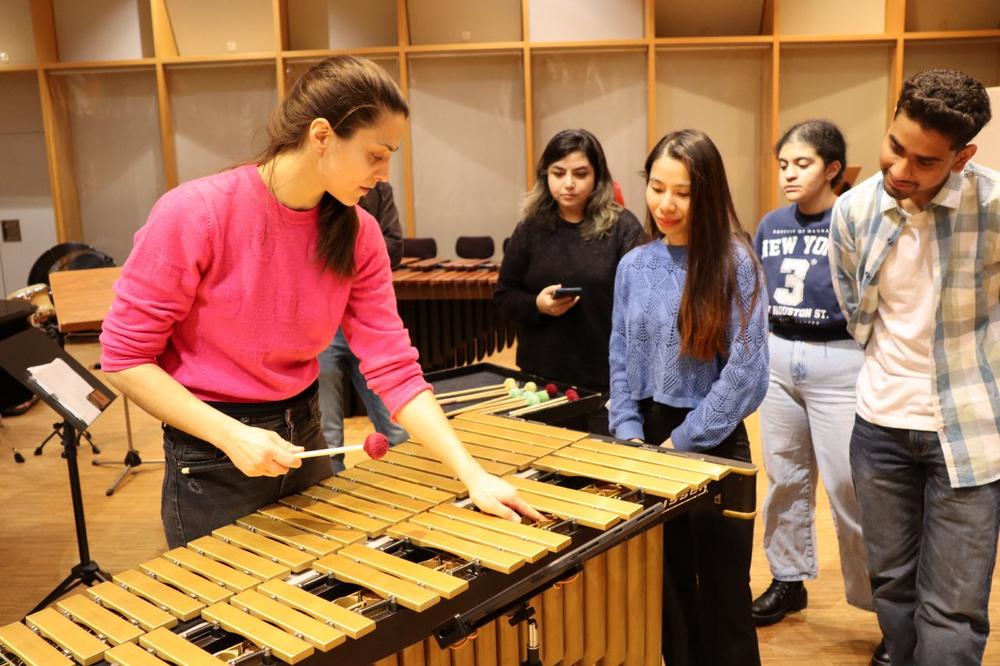One thing is immediately apparent to the students and staff of the TUM Campus Heilbronn, who are attending the rehearsal as part of their campus’s collaboration with the WKO: Every now and then, a member of the ensemble interrupts the group playing to ask a question or make a suggestion. There is a lively culture of discussion, and this raises questions among the guests about the structure of feedback between the musicians. The ensemble members themselves provide the answer during the subsequent discussion: “We believe that everyone has something important to say,” says pianist Frank Dupree. “It’s always a two-way communication. It makes no sense to think hierarchically,” violinist Johannes Hehrmann agrees. Georg Oyen, cellist and artistic director of the chamber music series, even draws a connection between music and politics: "The birth of chamber music coincided with the birth of democracy." It is no coincidence that a chamber music ensemble is much more democratic than a hierarchical symphony orchestra.
Classical frustration and soundtrack passion
But is it even chamber music that the guests get to hear that day? The instrumentation of two violins, viola and cello seems classic, but what is the vibraphone – an electrically operated percussion instrument with metallic sound plates – doing here? And don’t some passages sound like free improvisation? So is it classical or jazz? For the musicians, the answer is clear: it’s both. “Chick Corea was a jazz musician, but also a classical pianist, and in this piece he tried to combine both,” explains cellist Oyen. The instrumentation of the piece is unique, adds vibraphonist Vivi Vassileva. But the music of Mozart or Beethoven was also revolutionary in its time. ‘We have to live in the moment and play compositions of our time,’ she emphasizes.
Is this a possible way out of the current crisis in classical music, which is addressed by one student? Maybe there is no crisis at all, says Vassileva: “A lot of people say they don’t like classical music. But at the same time, they watch movies and enjoy the soundtrack, which is basically nothing else but classical music. They’re just often not aware of it.”
Passing the message on to the audience
Another danger threatens classical music as well as live music in general, as pianist Dupree explains: “Nowadays, you can make music without making music. With Artificial Intelligence, it’s even easier. There is a risk that we will lose our knowledge.” Will there still be concerts at all in 200 years? Dupree is firmly convinced that “at certain moments, we will always have the need to listen to live music.”
The fascination with acoustic instruments must be preserved, says cellist Oyen. And the almost magical experience of a concert: “Music is always communication. The composer has a message for the audience. We are the medium that passes on the message.” One person for whom the message is certainly getting through is TUM student Fathia Ismail: “It’s about so much more than just the notes; there’s always a story behind it,” says the enthusiastic pianist. ”I can’t imagine a world without people playing classical music.”
Die TUM Campus Heilbronn gGmbH
Bildungscampus 2
74076 Heilbronn
Telefon: +49 (0) 7131 264180
Telefax: +49 (7131) 645636-27
https://www.chn.tum.de/de
Telefon: +49 (7131) 26418-501
E-Mail: Kerstin.Besemer@tumheilbronn-ggmbh.de
![]()
